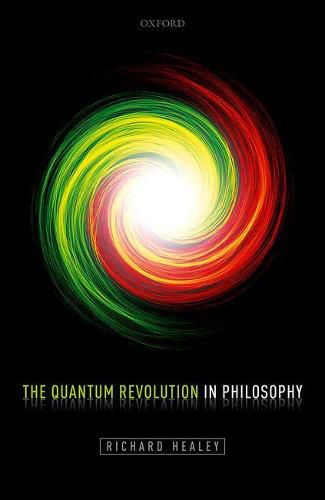Readings Newsletter
Become a Readings Member to make your shopping experience even easier.
Sign in or sign up for free!
You’re not far away from qualifying for FREE standard shipping within Australia
You’ve qualified for FREE standard shipping within Australia
The cart is loading…






Quantum theory launched a revolution in physics. But we have yet to understand the revolution’s significance for philosophy. Richard Healey opens a path to such understanding. Most studies of the conceptual foundations of quantum theory first try to interpret the theory - to say how the world could possibly be the way the theory says it is. But, though fundamental, quantum theory is enormously successful without describing the world in its own terms. When properly applied, models of quantum theory offer good advice on the significance and credibility of claims about the world expressed in other terms. This first philosophical lesson of the quantum revolution dissolves the quantum measurement problem. Pragmatist treatments of probability and causation show how quantum theory may be used to explain the non-localized correlations that have been thought to involve spooky instantaneous action at a distance. Given environmental decoherence, a pragmatist inferentialist approach to content shows when talk of quantum probabilities is licensed, resolves any residual worries about whether a quantum measurement has a determinate outcome, and solves a dilemma about the ontology of a quantum field theory. This approach to meaning and reference also reveals the nature and limits of objective description in the light of quantum theory. While these pragmatist approaches to probability, causation, explanation and content may be independently motivated by philosophical argument, their successful application here illustrates their practical importance in helping philosophers come to terms with the quantum revolution.
$9.00 standard shipping within Australia
FREE standard shipping within Australia for orders over $100.00
Express & International shipping calculated at checkout
Quantum theory launched a revolution in physics. But we have yet to understand the revolution’s significance for philosophy. Richard Healey opens a path to such understanding. Most studies of the conceptual foundations of quantum theory first try to interpret the theory - to say how the world could possibly be the way the theory says it is. But, though fundamental, quantum theory is enormously successful without describing the world in its own terms. When properly applied, models of quantum theory offer good advice on the significance and credibility of claims about the world expressed in other terms. This first philosophical lesson of the quantum revolution dissolves the quantum measurement problem. Pragmatist treatments of probability and causation show how quantum theory may be used to explain the non-localized correlations that have been thought to involve spooky instantaneous action at a distance. Given environmental decoherence, a pragmatist inferentialist approach to content shows when talk of quantum probabilities is licensed, resolves any residual worries about whether a quantum measurement has a determinate outcome, and solves a dilemma about the ontology of a quantum field theory. This approach to meaning and reference also reveals the nature and limits of objective description in the light of quantum theory. While these pragmatist approaches to probability, causation, explanation and content may be independently motivated by philosophical argument, their successful application here illustrates their practical importance in helping philosophers come to terms with the quantum revolution.